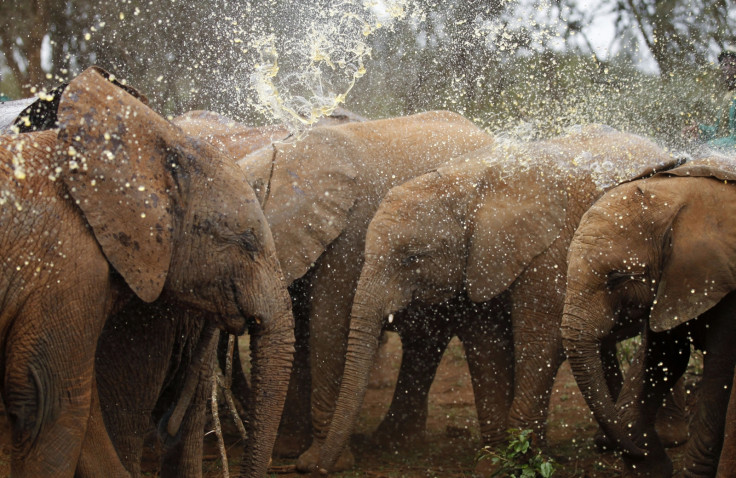Kenya: Poachers kill 5 elephants in Tsavo West National Park

Poachers have killed five elephants belonging to an endangered species in Kenya's Tsavo West National Park amid the ongoing outrage over the hunting of Cecil the lion in Zimbabwe.
The carcasses of a female adult jumbo and four young adults were found by Kenyan authorities after an intense search. Two suspects have been arrested while a manhunt is on for the rest of the gang.
"KWS [Kenya Wildlife Service] rangers were dispatched on a search mission and found five carcasses of freshly poached elephants comprising a female adult and four sub-adults with tusks missing.
"The carcasses were traced at about 11am on Tuesday, 28 July, 2015 at Losoita area of Tsavo West National Park from where the search mission team tracked the suspected poachers to the nearby manyatta," said KWS's spokesperson Paul Udoto.
Blood-soaked axes and axe handles were also recovered from the scene. All the tusks of the elephants were found hacked off.
Kenyan authorities suspect the poachers are from neighbouring Tanzania who quickly escaped after plundering the tusks, which are estimated to fetch thousands of pounds.
Poaching of elephants for ivory has increased dramatically in Kenya in recent years, thanks to the growing demand for the product in Asian markets where it is used for medicinal purposes.
Elephants are believed to be under greater threat from poachers than lions.
"It's just devastating. It took us completely by surprise. We've increased our intelligence and our operations. We were having success. That's why we're so surprised," said Paul Gathithu of the KWS, according to the Washington Post.
Large-scale poaching prompted the United Nations to pass an unbinding resolution calling on nations to do more to protect endangered species like elephants and rhinoceroses. The resolution was the first of its kind to be passed by the UN General Assembly.
"This is a historic step made by the international community. This phenomenon hampers investment, especially in areas where illicit activities are undertaken. It represents a real threat to the stability of our state," said Gabonese Foreign Minister Emmanuel Issoze-Ngondet.
© Copyright IBTimes 2025. All rights reserved.






















